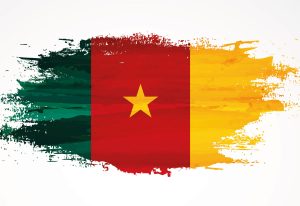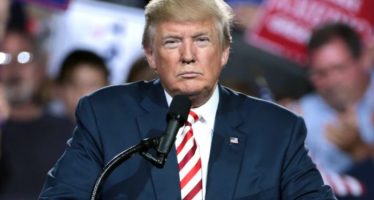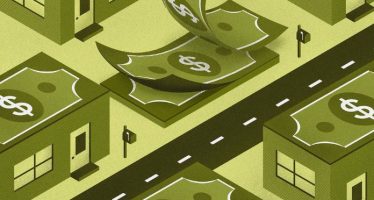Africa – Unity Key to Remarkable Success in Fighting Covid-19
 The corona scare has passed, and most countries of Africa are reopening their borders and businesses. Infection rates never reached the apocalyptic highs that had been predicted. With around 17 percent of the world population, the continent tabulated just under 33,500 deaths from covid-19, or about 3.5 percent of the global total. According to Dr John Nkengasong, the Cameroon virologist who heads the Africa Centres for Disease Control and Prevention since its foundation in 2016, the curve is slowly bending downwards, and fatalities have now dipped to fewer than one hundred a day.
The corona scare has passed, and most countries of Africa are reopening their borders and businesses. Infection rates never reached the apocalyptic highs that had been predicted. With around 17 percent of the world population, the continent tabulated just under 33,500 deaths from covid-19, or about 3.5 percent of the global total. According to Dr John Nkengasong, the Cameroon virologist who heads the Africa Centres for Disease Control and Prevention since its foundation in 2016, the curve is slowly bending downwards, and fatalities have now dipped to fewer than one hundred a day.
Nkengasong was instrumental in bringing Africa’s 54 countries together in a quickly assembled ad hoc alliance to fight the pandemic and formulate a joint response which has been more effective in containing the viral outbreak and spread than those of others, such as the United States.
Haunted by the memory of the estimated twelve million Africans dying before cheap antiretroviral drugs became available for the treatment of HIV, Nkengasong mobilised public health officials and pressed political leaders to put their differences aside. He appealed to them to act promptly, jointly, and decisively to halt the pandemic by leveraging the continent’s few advantages such as a relatively young and healthy population.
Rudely shoved aside when other countries deployed their financial firepower in the unseemly global battle to secure test kits, ventilators, and personal protection equipment, the African Union and the Africa CDC joined forces with public and private entities to establish a robust online purchasing platform and strongarm the continent back into the global market. The initiative has been so successful that a number of Caribbean countries have signed up and now source their medical supplies via the new facility.
President Nana Akufo-Addo of Ghana remembers that at the very beginning of the Corona pandemic, only days after the first case of covid-19 was reported on February 14, he and other leaders agreed that the only viable option was to cooperate closely: “We just had to depend on each other as it soon became clear that little outside help would be forthcoming.”
Begging Bowl Ditched
Nkengasong didn’t want to wait for help either: “We reject the image of Africa holding a begging bowl. In fact, I realised that the financial resources were there and just needed tapping into. Former USAID Administrator Gayle Smith has no doubt: “Africa is a great story that needs telling. The continent is getting a lot of things right where others either dither or simply fail. In fact, Africa is the only part of the world I’m aware of that actually built a PPE supply chain from scratch.”
Smith is not the only one singing Africa’s praises. Director Sema Sgaier of the Surgo Foundation that produced a covid-19 vulnerability index for the continent says she’s optimistic: “The countries of Africa have shown real leadership and succeeded in rallying their scarce resources effectively and impressively.”
The next battle against the disease concerns access to any future vaccine. Nkengasong explains that the first step has already been taken in June by securing a number of late-stage clinical trials. The first one got underway in South Africa which by the last week of June had nearly one-third of all Africa’s confirmed cases. Due to limited local testing capacity, clinical trials of new medication usually take place outside the continent. However, the Africa CDC and the World Health Organisation (WHO) have managed to vastly increase lab capacity for covid-19 in a matter of just months. At the start of the pandemic, only two African countries were equipped to test for the coronavirus whilst now all 54 have that capacity.
The WHO estimates that Africa can initially access up to 220 million doses of any future vaccine through its COVAX (Covid-19 Vaccines Global Access Facility) programme – a favourite target of the US Administration which declined to join. However, Nkengasong says that Africa needs at least 1.5 billion vaccine doses in order to approach herd immunity by immunising 60 percent of the population. The campaign is expected to cost upwards of $10 billion.
South Africa Hurt Badly
Though Africa managed to contain the spread and infection rate of the coronavirus, the economic effects of the pandemic could yet make for a pyrrhic victory. As South Africa reopened its borders on October 1, visitors encountered a heavily damaged country with a jobless rate steadily climbing to breach the 50 percent mark. During Q2 2020, at the height of one of the world’s strictest lockdowns, GDP shrank 16 percent on a quarter-to-quarter basis in real terms and a whopping 51 percent on a seasonally adjusted annualised rate. Over the entire year, South Africa’s GDP is expected to decline by 8 percent or more.
So far, the government and its social partners have been unable to come up with a recovery plan, although President Cyril Ramaphosa did reveal that one had been ‘agreed upon’ without offering any further details. Meanwhile, the government told the National Treasury to look behind the proverbial couch to find a chunk of change for the rescue of troubled flag carrier South African Airways which last turned a profit over a decade ago and has languished in administration since last December.
In an ominous sign that has investors worried, Finance Minister Tito Mboweni seems to have lost his feud with Public Enterprises Minister Pravin Gordhan who insists that the airline must be kept solvent and aloft. Gordhan enjoys the full backing of the ruling African National Congress (ANC) which has long misused SAA as a deluxe storage facility for its extended family and its friends – and friends of its friends. An initial 10 billion rand (approx. $590 million) has apparently been committed by the cabinet to underwrite the first stage of the airline’s reorganisation and restructuring.
Another urgent matter on Ramaphosa’s plate concerns state-owned power company Eskom which generates more losses than it does electrical power. The company’s singularly poor performance has long checked economic growth and will undermine any recovery plan. Eskom’s losses stem, in part, from bills left unpaid by local, provincial, and national state entities.
Nigeria Reeling
Africa’s largest economy is reeling as well with GDP forecast to contract by 6.1% over 2020. Although the country’s relatively short lockdown was gradually eased from early May, the slump in oil prices – which tumbled from a January high of almost $70 per barrel to an April low of barely $15 – has deprived the federal government of 75% of its oil revenue. According to the Nigerian National Petroleum Corporation, the government’s share of oil export sales in July amounted to just $55.3 million. Although oil prices have recovered some ground since, the loss of income has now fully derailed the Economic Recovery and Growth Plan introduced in the wake of the crippling 2016 recession.
Analysts fear the country may not recover any time soon. During a recent webinar organised by Nairametrics, a Lagos-based financial resources provider, Rolake Akinkugbe-Filani of real estate investor and developer Mixta Africa noted that the economic fundamentals of the country have still not changed and Nigeria continues to live above its ‘pay grade’ looking to finance its deficit addiction by borrowing: “That is just not sustainable.”
Meanwhile, Zambia became Africa’s first covid-related debt defaulter when President Edgar Lungu announced that his country was negotiating a six-month suspension of repayments, beginning October, with the holders of bond tranches worth $3 billion. Zambia’s total foreign debt amounts to $11 billion, a significant part of which is owed to China.
However, Beijing has indicated its willingness to display ‘flexibility’ in renegotiating the terms of outstanding loans but may ask for a quid pro quo in the form of a commitment by the International Monetary Fund (IMF) to support low-income countries. Zambia and others facing a cash crunch remain, however, reluctant to ask for IMF support. Lungu faces an election next year and has so far refused, albeit politely, to enact the reforms the fund has suggested.
Under its own power, and largely without outside help, Africa has succeeded, beyond all expectations, in keeping the coronavirus in check and avoiding a cataclysmic public health emergency. Almost as importantly, African nations showed that they can effectively coordinate policies by working together to defeat a common foe. This is where the key to the continent’s future lies: expand that newfound unity to markets and a winner emerges.
You may have an interest in also reading…
Oops, He Did It Again?
Oops, he did it again. The choir of commentators that almost unanimously predicted a Biden landslide has been caught singing
Shock and Ore — India’s Love of Gold Goes Beyond Market Prices
Gold is considered the most valuable of all the precious metals — especially in Indian culture. While the fabulous ore
Bonds: Name of the Game for Cool (and Resilient) Operators
US corporate bonds certainly lack the thrill of that other famous Bond, James. But when it comes to strength and


















































































